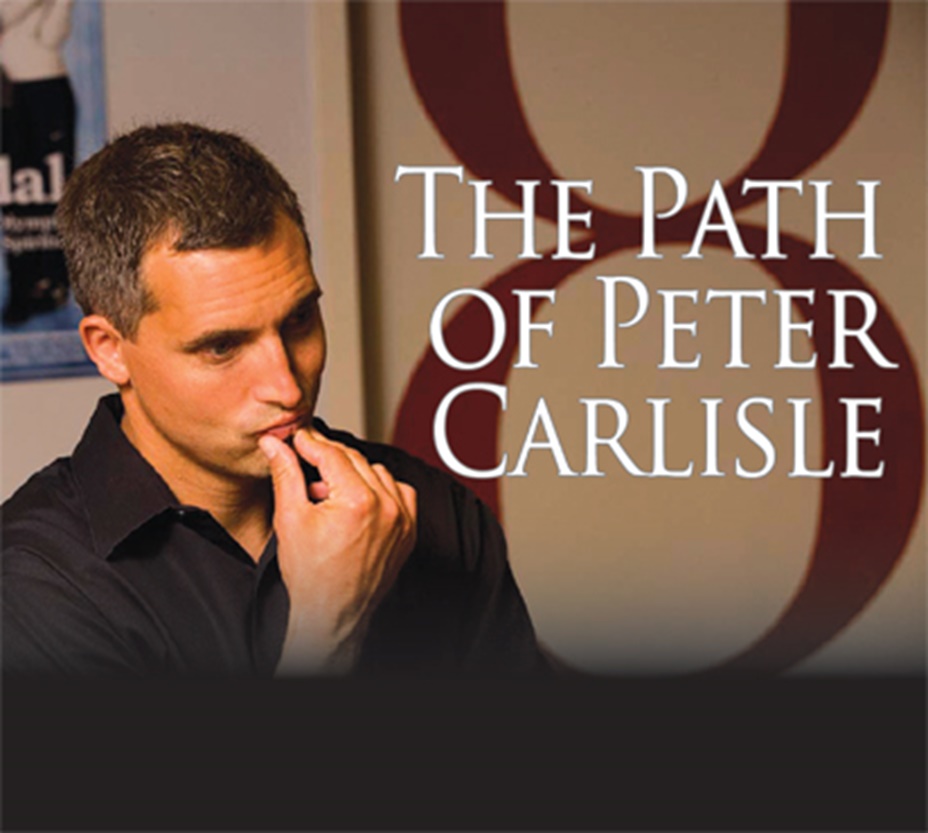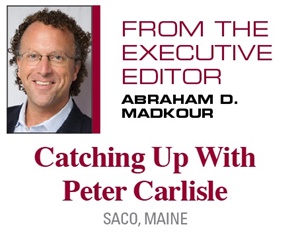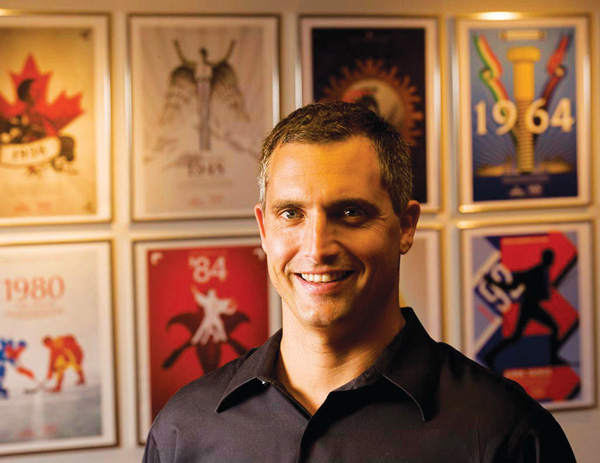 |
Octagon’s Carlisle has forged a thriving athlete representation career born from the idea of creating value through marketing.
Photo by: OCTAGON |
He greets me in Octagon’s office in Saco, Maine, on a sunny, windy March morning dressed casually in a charcoal sweater and holding a Starbucks coffee.
I ventured to the Maine coast to spend a morning with Peter Carlisle, who is largely credited with creating the industry of representing top athletes in Olympic sports. The small, simple office, adjacent to an ice center, showcases Olympic history and the agency’s clients: large boards of Wheaties boxes featuring Michael Phelps, SI covers showing their snowboarding clients and framed program covers from all the Olympic Games.
It’s validation of the vision Carlisle, 47, had in 1997 while attending a Portland Pirates AHL game and deliberating combining his zeal for sports, advocacy, creativity and understanding of the law into a profession.
He fully developed that idea to represent some of the most successful Olympic athletes of this generation, elevating interest and attention in them — and their sports — to new levels while shaping their public image.
Now, he’s on the eve of accompanying Phelps, his most successful yet challenging client, to a record fifth Olympic Games.
Peter Carlisle’s path wasn’t straight or clear. The admitted nonconformist took years to find his way, but then set his course and followed it with intensity and competitive zeal. Nearly 20 years later, Carlisle’s business has become bigger, broader and more complicated than ever, but he’s remained true to his fundamentals of following intuition, strength of conviction and sense of creativity within the comfort of his home state of Maine.
Maine has been the thread throughout Carlisle’s life. He grew up in the small town of Cape Elizabeth, just south of Portland, close to where he lives now with his wife, Justine, and their three children. His mother still lives in Cape Elizabeth, and his two brothers live nearby.
“We are all still here,” he says, as we walk through the office.
Carlisle’s father was a lawyer, and his mother volunteered in the area of criminal justice.
For Carlisle, the middle of three boys, growing up was all about sports. “That was the culture I was most comfortable in. I played everything. Soccer in the fall, hockey and basketball in the winter; baseball in the spring. My dad was into tennis, so I played tennis, and I skied.”
While sports was a comfort zone, Carlisle didn’t conform to the classroom.
“I was a pain in the ass,” he admits with a laugh. “I was disruptive. I served a lot of time in detention. I always had a tough time sitting in class and learning. Some of it was ADHD; but I didn’t know that. I was told by a lot of people, ‘You got to get your shit together.’”
Carlisle’s Take On …
■ Advice to young people looking to get into the sports business …
“If you want to work in sports, you absolutely can. There is a way to do it. But I don’t know if you really want to do it. Your friends are going to be paid more money. They are going to be working fewer hours. You are going to have to take every opportunity that you possibly can to put together enough experience to provide value to an employer. The good news is that you can do it if you got the talent and if you want it. That is the way it works. You are going to be overworked and underpaid for a period of time. If you don’t have unique value to provide, then it is going to be a long haul. If you really want it, you can do it. But I think of the people that really want it badly, it’s 1 out of 10. I try to get them to think about why they want it and really question themselves.”
■ The IOC should be focusing on …
“Change. Systemic change. Significant change. There are major structural deficiencies with the Olympic movement. It’s a fairly old infrastructure. Times change. Marketing is different. The Olympics as an event and brand is very valuable. But I have a lot of issues in the manner in which it is governed. Athletes struggle to get enough funding to train.”
He started to get his shit together after his sophomore year, when he went to summer school at Exeter in New Hampshire.
“That opened up the world of learning for me. I became a much more serious student.”
He went to Northfield Mount Hermon, a private school in Massachusetts, which was bigger and more diverse.
“It was a very different place, pretty liberal and people were from all over. It was a real adjustment, really uncomfortable, but that’s what I found to be so enriching about it. I grew to love it.”
After graduation, he stayed close to home and went to the University of New Hampshire, where he played on the tennis team, and had an epiphany in learning.
“I took two classes, and had I not taken those, I don’t know if it would have worked out for me. I took a logic class and I couldn’t get enough of it. I was so into it. That was coupled with an intro to philosophy. Those lit the fire. It was a different way to view things and to think. It was a perspective, a way of viewing anything, a creative process. It just changed the game.”
Looking to broaden his experience, he did a semester in London before transferring to Bates College. After graduation, he had no idea what was next.
“I didn’t want to go to the job fair and get a job like my brother had done for the bank. I didn’t want to get an MBA. I enjoyed learning, but found the classroom difficult. My professors told me that I had an aptitude for logic, reasoning and writing. So law school would be a decent place to go.”
He enrolled in the University of Maine School of Law in the fall of 1991, and again, it was about the material more than conforming to the classroom.
“I didn’t enjoy the classroom, but I loved the work, the writing, the logic, the construction of trying to make an argument.”
He joined a practice near Portland, yet quickly pushed at the rigors of convention while sports tugged at him.
“My cardinal rule is don’t lie. I have not lied in my career. There is no reason to lie, and there are plenty of reasons not to. That’s just what I live by. That’s what I demand of the people that work with me.”
PETER CARLISLE
“What drove me crazy about law was that you bill your time in six-minute increments. Philosophically, that drove me nuts. To think that my time is of the same value, regardless of what I am doing. It didn’t make any sense, and I feared I would lose interest. In addition, I was always thinking about sports.”
A day after reading an article about agent David Falk’s marketing of Michael Jordan, Carlisle was watching a Pirates game, contemplating his next step.
“There was no reason that approach with athletes couldn’t apply on a scaled-down version in Portland. The question was whether there was enough value in that scaled-down version,” he says.
Confident in his conviction, he targeted emerging sports, many in the mountains of Maine.
“I felt it could absolutely work. I love trying to help someone that is getting taken advantage of, but it wasn’t just from an advocacy standpoint. It was also creating more value for them through the marketing. I have always been inclined to look at something and see something better — ‘This is great, but we can do this.’ That is what athletes need you to do.”
At 27, and dating Justine, Carlisle figured this was his chance.
“Snowboarding emerged and there was this buzz around action sports and marketing to a younger generation. There was no governance restrictions like those that undermined the marketability of traditional Olympic athletes. I wouldn’t have done it for skiing or figure skating because the governance was so restrictive that it would take too long to develop a business. But I decided I would make a run at this.”
He felt confident as he drew his road map.
“I had my plan. If I believe it, I do not care what anyone thinks. I understood the risks. I didn’t fear failure; I knew failure was a decent possibility. But one of the advantages I have is that I understand the business from the ground up. I know what paper and ink cost. That helped me. ”
At that time, a fledgling action sports agent needed to be at the annual SIA Show in Las Vegas, the convention where all the deals got done. Flying out to the show in 1998, Carlisle was overwhelmed with a sense of urgency.
“Can I sign these athletes?” he remembers thinking. “Will they see the value in me? Do they even want to do deals in the mainstream? That wasn’t even certain.”
Walking into the winter trade show, “It was a gut check moment and I worked my ass off.”
Snowboarding could see rebound but only with ‘product evolution’
Snowboarding was the sport that Peter Carlisle attached his business and professional growth to in 1998. But even he admits it’s far from its salad days, for various reasons.
“It’s not as vibrant. It was a sexy sport. When I started, it was cool to be boarding and not to be skiing. But it’s a hard sport, the learning curve is steeper than skiing. It can be a painful few days for people when you start. When I started focusing on snowboarding, I started it and brought my wife, and she broke her wrist 30 feet off the chair lift. That happens to so many people. The sport is difficult, and from a product standpoint, they haven’t developed anything to make it easier. It’s easier to get people into skiing, and today less than 5 percent have snowboards. It could turn again. But it has to be with a product evolution, so I can put my wife on a snowboard and she can experience it without hurting herself. ”
The sport’s decline also has affected the businesses surrounding it.
“It used to be that if you were in the top 50 to 100 snowboarders, you could get six figures a year on a snowboard deal. Now, it is like the top five to 10. Burton Snowboards used to have 30 to 40 people under contract. Now they probably have five to 10. It is just unbelievable.”
— Abraham D. Madkour
He did a few deals for snowboarder Ryan Mullen, but people were suspicious of him.
“They didn’t want to be dealing with an agent, a lawyer and someone that didn’t grow up snowboarding. But I didn’t give a shit. You had to get through the prejudice and stereotypes.”
In Vegas, Mullen introduced Carlisle to a young Vermont snowboarder who changed his fortunes forever.
Ross Powers had just won a bronze medal at the Nagano Winter Games in the halfpipe, yet didn’t have representation. Carlisle finally got alone time with Powers in a stairway at Sunday River ski resort in Maine, weeks after their initial meeting.
“He had been courted by three or four agencies. We hit it off, but he was very concerned about what his mother might want.”
They set up a second meeting, each driving halfway to meet at an Applebee’s in Keene, N.H., (“where we meet even today to exchange our kids”). There, Carlisle met Powers’ mother, Nancy, who was wary of his lack of experience. “She said, ‘You don’t snowboard. How are you going to do this?’ But, Ross felt comfortable with me, and his mom supported that. He told me he wanted to work with me.”
Carlisle leans back in his chair, reflecting on his first big get.
“He was Shaun White of his day. We signed deals within a month and that was the beginning of it all.”
The business took off, as Carlisle signed stars like Seth Wescott and Kelly Clark.
“We got up to five people on staff and increased our client roster significantly.”
Carlisle pauses, acknowledging, “I owe everything to Ross.”
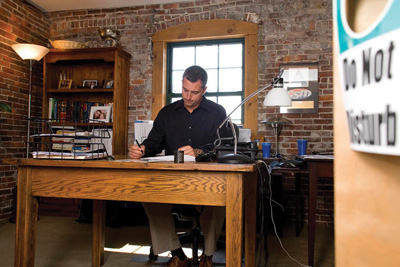 |
One of Carlisle’s stipulations when Octagon acquired his agency was that his business remain in Portland, Maine.
Photo by: OCTAGON |
As the business of Carlisle Sports Management grew, so did outside interest, and Octagon approached him in 2000. The agency had investments in action sports, and its top action executive, Wade Martin, was looking to marry athletes with their events.
For the 31-year-old Carlisle, who shouldered responsibilities for a staff and clients, the decision to sell was wrenching. But he stayed true to his core in negotiations, remaining adamant in talks with Octagon’s Phil de Picciotto that his business stay in Portland and that he be able to run it his way.
“The main issue was staying in Portland. I also wanted to do business the way we were doing it. I was the one with the plan. I wanted to be damn sure that I would be able to pursue that. I couldn’t be forced to change my approach.”
Octagon’s scale began to win him over.
“There are certain resources you need to effectively market Olympic athletes. You need to have international reach. I knew that I had to become a lot bigger, and quickly. I had to think, did I want to do the business or manage the business? It may have taken me 20 years to get what they have. I don’t regret it. It was the right decision.”
The deal, which closed in 2001, was affirmation of his vision and conviction.
“It was a tremendous feeling of confirmation in terms of what we’d built and done, because a number of people didn’t see it or understand it. That was really satisfying.”
During the Salt Lake City Winter Games in 2002, Carlisle received an email from a friend asking if he had interest in representing a young Maryland swimmer, Michael Phelps.
“I was aware of Michael, but I was focused on Salt Lake. I was not leaving Utah to meet with him.”
He didn’t have to leave Utah to endear himself to Phelps and his coach, Bob Bowman.
Octagon’s athletes, including Clark, Powers and others, were killing it in Salt Lake, and Carlisle went on the “Today” show to talk about marketing these new-age athletes.
“Michael and Bob saw my conversation with Matt Lauer. Michael had a chip on his shoulder because he believed swimming didn’t get enough respect. He wanted to build the sport. He went to practice that day and said, ‘I found our guy.’”
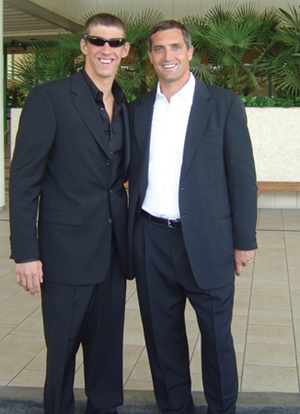 |
Michael Phelps spotted Carlisle on the “Today” show during the Salt Lake City Games. “I found our guy,” Phelps told his coach that day at practice.
Photo by: OCTAGON |
After Salt Lake, Carlisle went to Baltimore to meet with Phelps, Bowman and their team, but not Phelps’ mother, Debbie. “She wanted to be there, but she said if she went and liked someone, it would influence Michael, and it had to be his decision.”
Over a couple of hours, a relationship began to form.
“I thought the meeting went really well. With Michael and Bob, I explained that performance is what would matter. You are talking about a 10-year plan. You talk about this great potential. You are either going to realize it or not. The priorities have to be on performance. I will make the best of what’s left over. If you don’t win, I don’t have much to do. I seemed to have a pretty good rapport with Michael, but he was a young kid, so you don’t really know.”
Phelps has said that what stood out was Carlisle’s interest in hearing from the 17-year-old swimmer, asking specifically, “What do you want?”
“I asked him what he wanted to do,” Carlisle affirms. “I guess that was something he had not seen before. But I can’t tell you a plan until I know something about you. Then, I can say, ‘If this is what you want, here is the approach I would take.’ That may have been a different approach. The next day, they said they wanted to go with me.”
Knowing Phelps’ potential, he immediately focused on media training to handle the spotlight.
“I wanted him to be uncomfortable. I knew how much attention he was going to generate.”
He stayed away from scripted responses.
“What is wrong is telling athletes, ‘Here is your script.’ That is not going to work. Athletes run into trouble when they go on a show or in front of the media and tighten up. It’s because they haven’t put makeup on, haven’t been in front of the lights, haven’t been hit with the tough questions. Media training is to make you uncomfortable, give you exposure to everything that could be asked, so when you are in that situation, you’re comfortable enough to be yourself.”
The tale of Michael Phelps is well-known — the face of swimming in the U.S., the endorsement deals with Visa, Subway, Procter & Gamble and many others, the bong hit, the alcohol, the two DUIs and eventually time at the Arizona clinic. Asked about dealing with the crisis challenges posed by his star client, Carlisle sits up straight in his chair and gives me a direct stare.
“My cardinal rule is don’t lie. I have not lied in my career. There is no reason to lie, and there are plenty of reasons not to. That is just what I live by. That’s what I demand of the people that work with me.”
But he admits a client can take a more strategic approach.
“It doesn’t mean you need to volunteer every bit of information. It doesn’t mean you can’t be strategic. There are times where you need to be careful with what you say, and maybe you don’t want to answer every question. But be honest.”
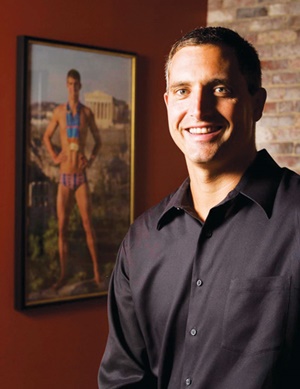 |
Carlisle will head to Rio for client Michael Phelps’ fifth Olympic Games.
Photo by: OCTAGON |
I asked if any of his clients or those close to them have pushed back on Carlisle’s counsel, and his answer shows the confidence of an adviser whose voice is heard.
“Every single thing an athlete does should be strategically considered. Sometimes parents or clients don’t get it. We do what we do in the way we do it, and it is not for everyone. This will sound arrogant, but I feel like I know this business. I know it and I can’t find anyone that knows it better. It’s a conviction and I believe it. I am not going to call an athlete wrong for not seeing it my way, but I am comfortable in saying this works and I do not believe in that. So let’s just go our separate ways. Sometimes that is the way you have to do it. We know what we’re doing.”
It’s still windy in the early afternoon when I jump in Carlisle’s Dodge Ram 1500, on our way to the Portland airport. At the time, we are five months out from Rio, and I wonder what his future holds as his top client nears the end of a storied career. The deliberate planner doesn’t miss a beat.
“I will take six months to a year to think really hard and long about my future. It’s a really good process. You think about what you do or don’t want. I don’t feel like I am reacting to any commercial or professional pull in any way. I’m sure I’d find opportunities appealing. I am not allergic to money. But I have flexibility. There is room to move or grow and I feel such a commitment to the clients, Michael, in particular. Coming out of Rio will be the time to think about that.”
Dropping me off at the airport, Carlisle remains true to his core, backed by his conviction and never pressured to conform.
“I don’t love every part of this job, but it suits me well. Every day is different. It drives me and my passions. That can be tricky to find. Maybe it’s because I got creative. I never liked structured learning. That is consistent throughout my life. That is why this work suits me, because I developed this business. Instead of trying to pound a square peg in a round hole, I am using the most productive part of me to the greatest interest of me. I get to bring that to work every day. I have never had one day where I don’t know why I am here or why we are doing what we are doing. The purpose has always been there. I am really fortunate for that.”
Abraham D. Madkour can be reached at amadkour@sportsbusinessjournal.com.


